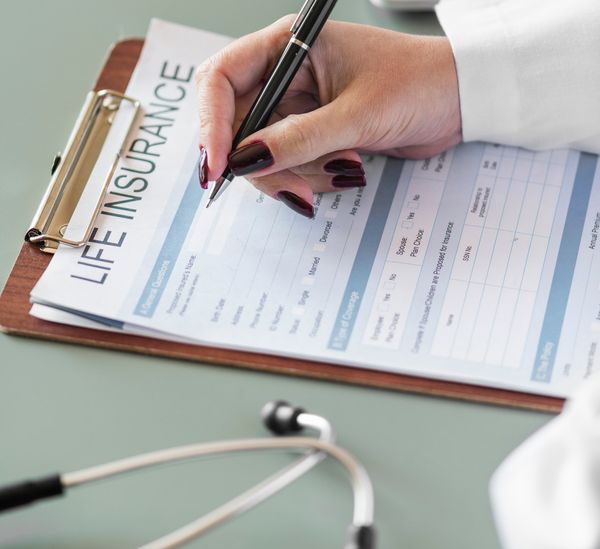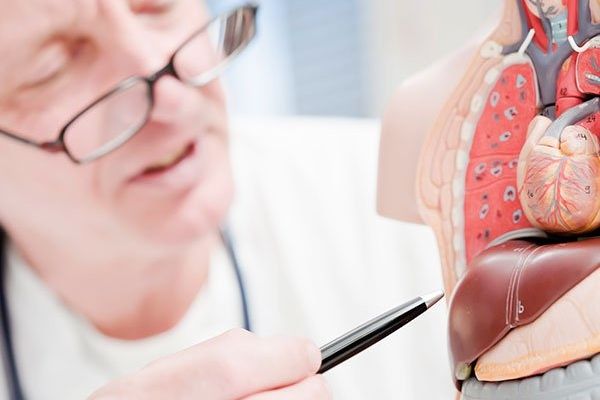The liver plays an important role in your body. It does tasks ranging from producing cholesterol, bile and proteins to storing minerals, vitamins and carbohydrates. It breaks down medications and alcohol.
That's why it's important to help protect yourself from liver cancer, which is the growth and spread of unhealthy cells in the liver. Cancer that starts in the liver is called primary liver cancer. Cancer that spreads to the liver from another organ is called metastatic liver cancer. Hepatocellular carcinoma (HCC) is the most common type of primary liver cancer.
About 30,000 Americans are diagnosed with primary liver cancer each year. Primary liver cancer is one of the cancers on the rise in the United States. It's about twice as common in men than in women.
Here are some liver cancer risks that may surprise you.
1. Hepatitis B and C infections
Worldwide, the most significant risk factor for liver cancer is chronic infection with hepatitis B virus (HBV) and hepatitis C virus (HCV). These viruses can spread from person to person through sharing intravenous contaminated needles (such as in drug use), through unprotected sex, and through childbirth.
Don't practice unprotected sex unless you're certain your partner doesn't have HBV or HCV. If you don't know your partner's health status, use a condom when you have intercourse.
Don't use IV drugs. If you must, use a clean needle that is sterile and don't share it. If you're getting a piercing or tattoo, go to a clean shop. Ask staff about their safety practices. Follow up with your doctor and get tested if your skin has been penetrated by dirty sharp instruments or needles.
The U.S. Centers for Disease Control and Prevention (CDC) recommends that all children and adults get the HBV vaccine to reduce the risk of hepatitis and liver cancer. There is no vaccine for HCV.
2. Alcohol and tobacco use
Drinking alcohol can lead to cirrhosis (scarring of the liver) which in turn, can lead to liver cancer. How much is too much varies from person to person. If you drink too much for you, you can cause your liver to have ongoing inflammation and have to overwork. That can lead to development of scar tissue and cirrhosis. Talk to your doctor about what amount of alcohol is right for you. You may be told to drink alcohol only in moderation or to quit completely.
If you smoke, quitting will help lower your risk of this cancer, as well as many other cancers and life-threatening diseases. A study found that smoking was the cause of nearly half of all liver cancers. Smoking stresses your system and can cause liver cell damage as well as cellular damage of the entire system.
3. Your weight
Obesity is thought to factor into nonalcoholic fatty liver disease, NAFLD. It's the buildup of extra fat in liver cells. It's one of the fastest-growing forms of liver disease, says the American Liver Foundation. Weight loss can help reduce liver fat.
4. Diseases that increase liver cancer risk
Certain inherited diseases can cause cirrhosis, increasing your risk for liver cancer. Finding and treating these diseases early in life could lower this risk. For example, all children in families with hemochromatosis (a disorder where too much iron builds up in your body) should be screened for the disease and treated if they have it. Treatment regularly removes small amounts of blood to lower the amount of excess iron in the body.
5. Your salt intake
On average, Americans eat more than 3,400 milligrams of sodium each day—much more than the American Heart Association and other health organizations recommend. The American Heart Association recommends no more than 2,300 mg a day and moving toward an ideal limit of no more than 1,500 mg per day for most adults. If you have pre-existing liver issues, too much salt can promote water retention and inflammation in the abdomen. That can overwork your liver. If you have cirrhosis, follow a low-sodium diet to prevent complications from fluid building up in the body. Learn more about salt, sugar and dietary guidelines.
6. Your sugar intake
Sugar isn't just harmful to your teeth. It can hurt your liver, too. Too much refined sugar and high-fructose corn syrup causes a fatty buildup, which can lead to liver disease. Limit foods like soda and baked goods. Stick to natural sources of sugar like fruit. Read more about why you should limit sugar.
6. Your medication use
Medications used incorrectly—taking too much, the wrong type or mixing them—can harm your liver. Don't mix alcohol with medication. Talk with your doctor about any medications you use and get instructions on how to properly take them.







